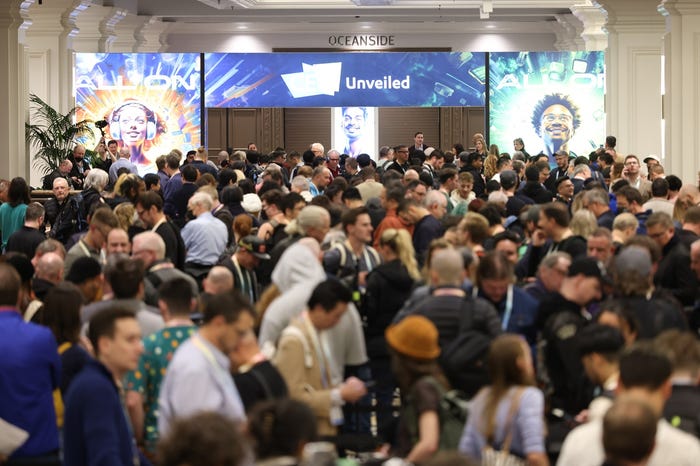
Connects decision-makers and solutions creators to what's next in quantum computing
Massachusetts Targets Statewide Quantum Ecosystem
Collaborative efforts aim to promote the technology flow from academia to mass manufacturing and close the skills gap

Massachusetts boasts several companies, universities and research organizations engaged in exploring the potential of quantum computing. The Massachusetts Technology Collaborative (MassTech) is supporting the state to establish itself as a national quantum hub, bringing together experts from industry and academia.
MassTech held a quantum conference in Boston last November to showcase the strength of the local industry and plans to release a Quantum Industry Assessment, which looks at Massachusetts’ potential for growth in the development of quantum technologies. It has also produced a Quantum Computing Ecosystem Study to analyze the quantum ecosystem in Massachusetts.
Massachusetts isn’t alone in aiming to establish a statewide quantum hub. Last October, the Biden administration designated 31 communities as Regional Innovation and Technology Hubs.
UMass – Helping Smaller Businesses Access Quantum Skills and Technology
Matt Bell is an associate professor at the University of Massachusetts (UMass) Boston who specializes in superconducting quantum computing. He is the principal investigator on a project funded equally by UMass and MassTech to build a collaborative network for quantum hardware development and commercialization, mainly targeting smaller businesses.
There's a lot of quantum computing technology in the labs of research groups and companies, and they have to make their own because there's no commercially available alternative on the market,” he said.
“In Massachusetts, there’s a lot of legacy talent from telecom and semiconductor companies. These businesses look at this quantum field and see a market opportunity and want to try to commercialize some of these lab-to-fab products but they don't have the necessary capital or the required environment, like dilution refrigerators.”
Bell is part of a collaborative network project that offers resources such as dilution refrigerator measurement systems and electronics to these smaller businesses. It also offers workforce development to cross-train technicians and engineers to help fill the quantum skills gap.
He believes that while Massachusetts offers a beneficial combination of companies and universities carrying out quantum computing research and development, alongside established tech companies like IBM, Google and AWS, the quantum hub goal supports a governmental decentralization effort.
“The U.S. has two epicenters of quantum hardware development, on the east coast and west coast,” he said. “What we've seen lately with the CHIPS Act and other quantum support is federal dollars going towards creating more distributed centers of quantum knowledge throughout the U.S.”
QuEra – Enabling the Quantum Technology Flow
According to Nate Gemelke, CTO and co-founder of QuEra, a quantum computing company that uses neutral-atom technology, Massachusetts is an ideal hub for quantum innovation because “technology is all about the flow.”
“You have ideas and inspiration and proofs of concept and so forth at universities that flow into a commercial ecosystem that has to bootstrap itself up. Massachusetts has Harvard and MIT – we feel very loving about those institutions, because many of us came from them. The whole ecosystem here is geared for getting ideas out of laboratories and into the real world making an impact,” Gemelke said.
QuEra is playing its part in that flow by supporting universities to create talent pipelines for quantum computing by including it in computer science curricula so graduates can create new languages to author software and write programs that run on quantum computers.
“You start to appreciate the village and the whole community that's around it, including organizations like MassTech that help you realize how important collaboration is,” Gemelke said.
“It's tempting when you're in a startup to imagine life is going to be about cutthroat competition. It's not true about quantum computing yet. But in quantum, it’s competitive because if what everybody is trying to accomplish doesn’t move fast enough – if quantum computers don't get bigger, useful and start impacting real lives – the world loses interest and support wanes. We have a ticking clock and we will lose that race.”
According to Gemelke, a critical step toward this mass acceptance is moving from small-volume manufacturing on a nascent technology to volume manufacturing, which is a local problem. Massachusetts is geared up to support that as it has experienced other technology revolutions, such as biotech, green tech and defense.
“In terms of manufacturing, we also have a lot to learn from defense contractors,” he added. “In 2013 the budget was cut by 7%. The state of Massachusetts felt that badly; there were machine shops and a supply chain supporting that industry that lost work.
“They absolutely can contribute to what we're doing and the only thing that we need to know is that they're there, otherwise, we're going to go online and use the first machine shop that we find and that could be anywhere in the world. The state plays a critical role in connecting the dots with people to make sure that we all know about each other's existence.”
About the Author
You May Also Like
.png?width=100&auto=webp&quality=80&disable=upscale)
.png?width=400&auto=webp&quality=80&disable=upscale)




